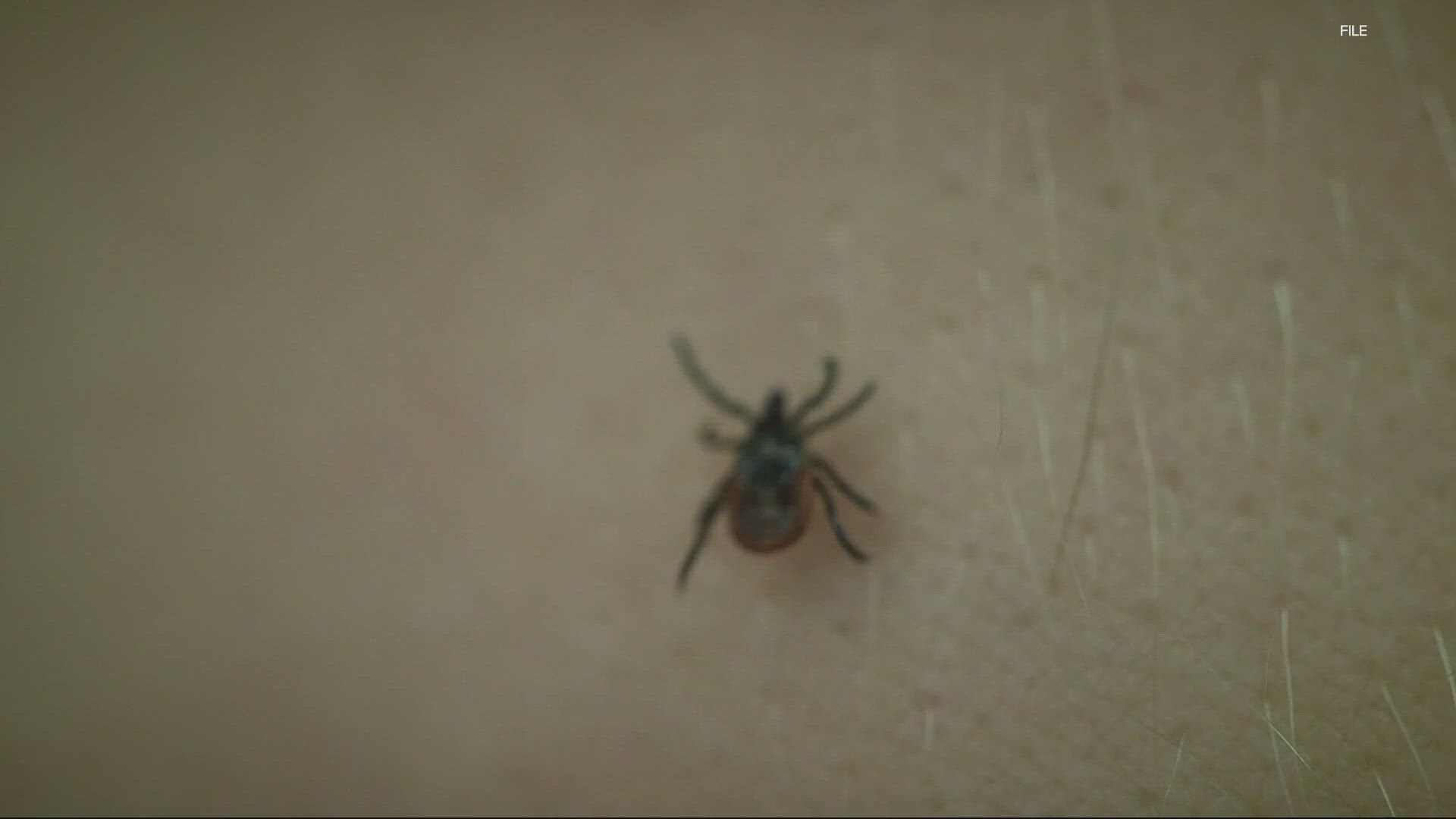PORTLAND, Oregon — A spike in people showing up with tick, mosquito and other insect bites in Portland urgent care this summer has one doctor working to calm Oregonians down.
KGW spoke with Dr. Anne Toledo with Kaiser Permanente about strategies to steer clear of blood suckers and why, even if you're bitten, you likely don't need to worry.
"Lots of people coming in with mosquito, tick, even bee problems," she said. "What scares everyone the most, or grosses them out the most, is if a tick bites me, how likely am I to catch Lyme disease, or some other problem?"
Despite an uptick in these concerns this summer, the risk right now remains low, according to Toledo.
"There are different types [of ticks]," she said. "The type that carries Lyme disease does live in Oregon. It is a Western blacklegged tick. The reassuring thing is that states do monitor how many of the ticks have Lyme disease. So, in Oregon, around 6% do. A tiny amount."
That's compared with states on the East Coast, where ticks and ticks carrying Lyme disease are far more common.
"People in the Northwest, who have less experience with ticks compared with our East Coast companions, you need to do a tick check as soon as you have been out hiking when you get home. Ideally within 12 hours of being out in brushy areas or the woods," she said. "The longer the tick is attached, they secrete something called cementum to stick into the skin more, so it’s harder to remove them. All the better to catch it as fast as you can so you can pull it out easily."
If you do find one on you, it still may not be time to panic.
"If the tick was on your body less than 36 hours, it is extraordinarily unlikely that it's even had a chance to transmit disease," Toledo said.
In rare cases, she said it can take within three to 30 days time for more severe symptoms to develop: fever, chills, achy joints and a full body rash.
"People get really worried about things like Lyme disease," she said. "Now, am I worried about that in the long-term for Oregon and other states? Yes, I am because I think ... the problem where we are seeing more bugs, for a longer time period… That does have to do with our climate.
Toledo added that she's worried about Lyme disease in the long term because she attributes the spike in bugs to climate change.
"I do think over the years to decades, we are going to see the problems that Oregon is not used to from bugs that range into our state that we didn’t have to deal with, and this is an early sign of that probably," she said.

